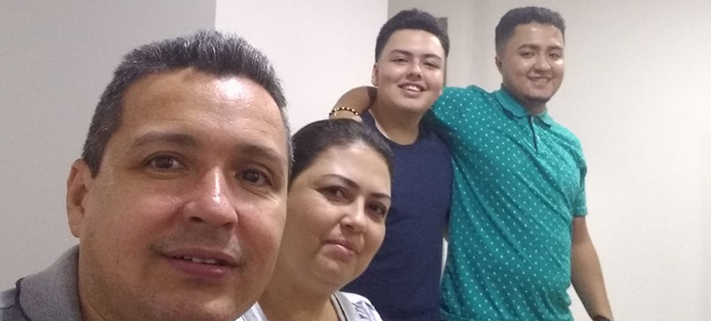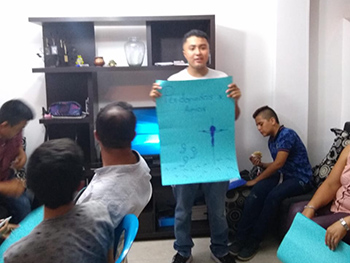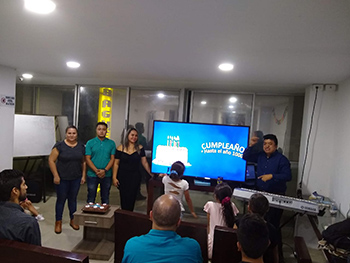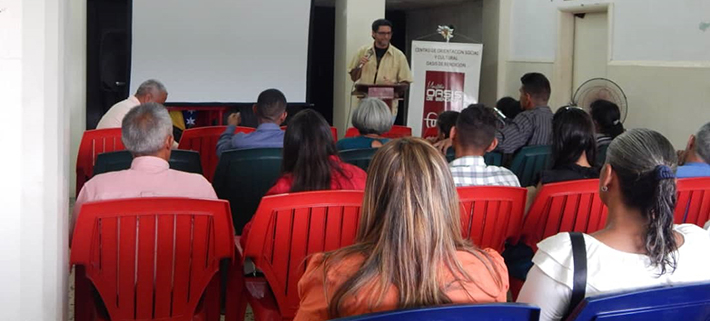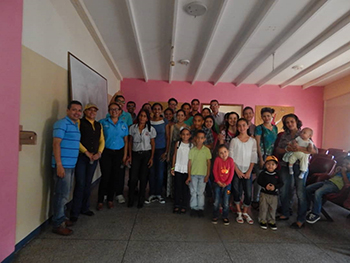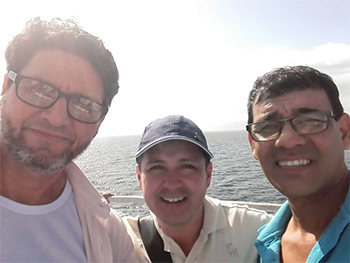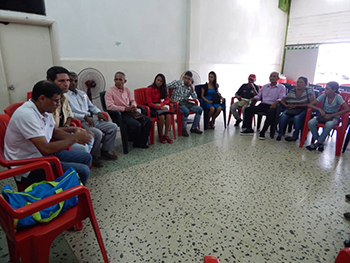What does starting a Lutheran seminary look like?
Walking through the central streets of Medellín, Colombia, is sensory overload. Smell the oil from the fried empanadas. Traffic everywhere. Whiny motorcycles. Carts selling some of the most beautiful fruit you’ve ever seen. Hey, is that WELS vicar Zach Satorius with a guitar case slung over his shoulder? Hard-working people scurrying off to their jobs. Others we see are obviously struggling in life. I wonder if people even noticed us. . . A tall professor from Wisconsin Lutheran Seminary and three short men: a Bolivian, a Colombian, and an American missionary, walking the streets for an hour or two every day, talking as we went. Is this what the start of a seminary looks like?
Followers of Jesus in places as far as Bolivia, Colombia, and the Dominican Republic have banded together to form a new international confessional Lutheran synod in Latin America: Iglesia Cristo WELS Internacional. God-willing there will be a representative from this new synod at the 2023 WELS Synod Convention, so you’ll be hearing more about this.
WELS mission efforts in Spanish-speaking Latin America are focused on Academia Cristo. We find people through social media. A mobile app walks people through the basics of the Christian faith. It’s up to each person if they want to continue learning. Those who finish the app are invited to participate in the first level of online discipleship training courses. By the end of level one, some of those who finish will join the Lutheran faith. They’ll also have the desire to teach others and start a core group. In level two we provide training for leading such a group through its early stages, with the goal of forming a church. (By the way, you can share our app with Spanish speakers in the U.S.)
As God blesses the work of the new Latin American synod and WELS mission efforts, groups become churches of the new synod. So how do people get further ministry training? It’s okay to start simple. WELS has been training pastors for almost 160 years. Know how it started? My understanding is that theological training happened inside the school building of St. Mark’s in Watertown, Wis. Humble beginnings. Not so different from the test classes that leaders of the new seminary, Seminario Cristo (Christ Seminary), have already started for more than a dozen group leaders to build on their Academia Cristo training. Participants learn to apply law and gospel, counseling, and biblical interpretation. They get to apply some of what they’re learning with the group they’re teaching right away that same week. Preaching, advanced doctrine, and other topics are coming. The Pastoral Studies Institute (PSI) and WELS missionaries advise and consult. The new synod leads the seminary in training people for different forms of ministry.
We did work in Medellín. Seminary leaders made philosophical and curriculum decisions. It was clear that we all shared the same faith and values. Everything needs to be Biblical, Christ-centered, and practical. We all knew it.
We preached to each other and prayed together. We played dominos. Shared life stories. We drank tinto (Colombian coffee) several times a day. We walked the streets of Medellín for hours. We laughed and prayed and bonded in Christ. Starting a confessional Lutheran seminary. . . there’s real work to be done. But it’s easy to forget that the love of Christ, walking together and loving one another. . . that’s part of starting a seminary too.
Written by Rev. Joel Sutton, world missionary on the Latin America mission team
WELS Missions
Learn about the ministry work of WELS Missions.
SUPPORT MISSIONS
Support the ministry work of WELS Missions.

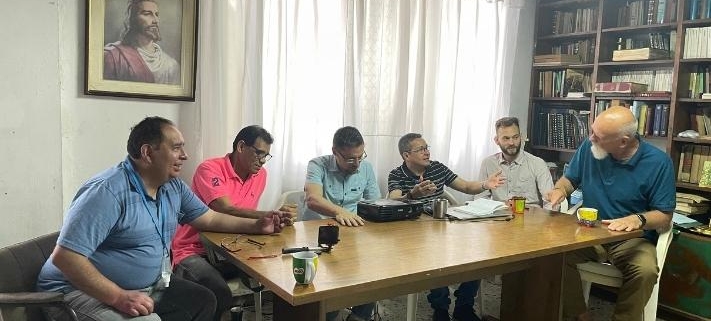
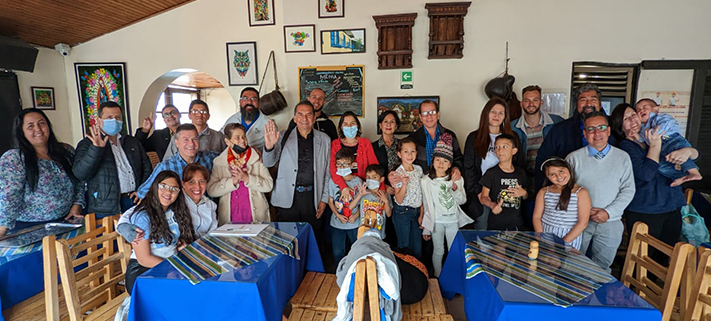
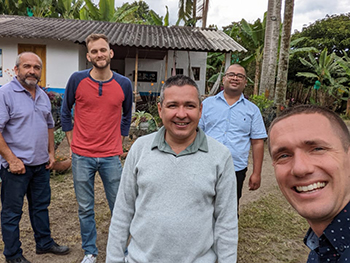
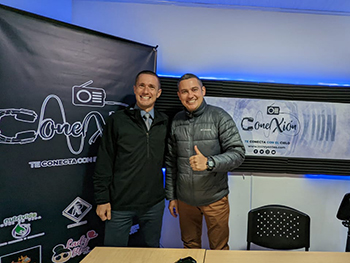 2) On Saturday, July 9, Academia Cristo student Yeison Lozano from Bogotá, Colombia, conducted a two hour interview with Missionary Behmer about our ministry on his radio program. He made several pleas to his listeners to download our app and enroll in live classes. Yeison gathers an independent group in a rented space in Bogotá and shows serious potential to become a church planter.
2) On Saturday, July 9, Academia Cristo student Yeison Lozano from Bogotá, Colombia, conducted a two hour interview with Missionary Behmer about our ministry on his radio program. He made several pleas to his listeners to download our app and enroll in live classes. Yeison gathers an independent group in a rented space in Bogotá and shows serious potential to become a church planter.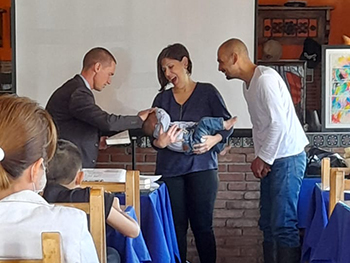 3) On Sunday, July 10, they held an in-person workshop in Bogotá. There were 27 in attendance. Among the participants were Academia Cristo student Verny (pediatric physician) and his family from Costa Rica. They were in Bogotá on vacation. Lucho Herrera from Doral, Fla., was in Bogotá and served as the keynote speaker. Academia Cristo student Camilo Herrera hosted at his restaurant and led the final worship service. Missionary Behmer had the privilege of baptizing the son of an Academia Cristo student! (Pictured)
3) On Sunday, July 10, they held an in-person workshop in Bogotá. There were 27 in attendance. Among the participants were Academia Cristo student Verny (pediatric physician) and his family from Costa Rica. They were in Bogotá on vacation. Lucho Herrera from Doral, Fla., was in Bogotá and served as the keynote speaker. Academia Cristo student Camilo Herrera hosted at his restaurant and led the final worship service. Missionary Behmer had the privilege of baptizing the son of an Academia Cristo student! (Pictured)